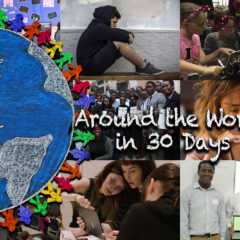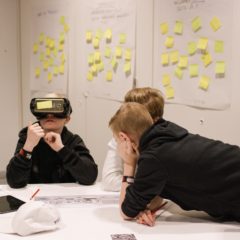The Global Search for Education: Are the Kids Doing Well in the Digital Age?
What is it like to be a child in 2019? A new OECD report, “Educating 21st-Century Children: Emotional Well-Being in the Digital Age,” says that while better support for physical and mental health has improved modern children’s lives, access to tablets and smartphones before you learn to walk and talk has consequences, good and not so good.
Around the World in 30 Days – October 2019
C.M. Rubin’s Global Education Report 75 to 95% of youth in the juvenile justice system have experienced trauma. Research indicates that the majority of youth suffering from trauma perform poorly in our education system and indeed, many drop-out. “Trauma has been proven to have chronic long-term psychological repercussions including depression, anxiety, and substance abuse disorders,” says Ashley Edwards, the co-founder and CEO of...
The Global Search for Education: Immersive Storytelling – Could VR Provide an Answer for Children with Dyslexia?
According to more and more studies, one of the biggest strengths of augmented reality (AR) and virtual reality (VR) is their ability to give students “real world immersive experiences” that could make learning both more memorable and more meaningful. But can virtual reality improve a dyslexic child’s reading experience?
The Global Search for Education: How a Bootcamp Accelerator Model Is Narrowing the Skills Gap
Audrey Cheng, the co-founder and CEO of Moringa School, was working for a venture capital firm investing in local tech funds in Kenya when she observed a significant skills gap between jobs available to young people and talent qualified to fill them.
The Global Search for Education: How Building Robots Builds Confidence in Girls
Prior to joining the Girls of Steel Robotics Program at Carnegie Mellon University’s (CMU) Field Robotics Center, Theresa Richards was a science teacher in Pittsburgh where she created an award-winning lesson integrating robotics into a Human Anatomy and Physiology course.
The Global Search for Education: Disrupting the Achievement Gap with Mind Health
“75 to 95% of youth in the juvenile justice system have experienced trauma.” Research indicates that the majority of youth suffering from trauma perform poorly in our education system and indeed, many drop-out.







Recent Comments